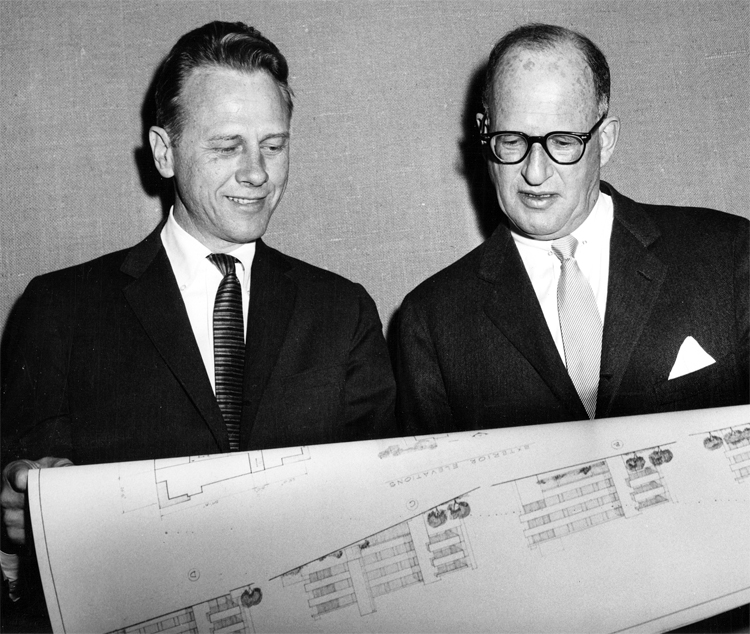You Can Help Make Eichler Plans More Available to Everyone
 |
|
|
For many Eichler owners seeking original plans, the first and best resource in Northern California is the Environmental Design Archives at U.C. Berkeley, which houses the plans for homes built by architects Claude Oakland & Associates. Along with A. Quincy Jones and the firm Anshen and Allen, Oakland and eventual partner Kinji Imada were some of Joe Eichler's main architects.
But the collection at the Environmental Design Archives is still largely unsorted. Rolled plans, photos, and other documents sit in boxes, and the archive doesn't have the manpower to flatten them, file them, or index them. So it's turning to the public, including Eichler owners, to help fund such an effort.
The archive has launched a campaign on Indiegogo to raise $12,000, which curator Waverly Lowell says will pay for the labor and materials required to turn the raw collection of Oakland plans into a working resource. "There are many many hundreds of projects, and thousands of sheets," Lowell says. And when people come in looking for plans to their house, the archive must search blindly, and frequently can't say immediately whether it even possesses the plans.
"What this will do is allow us to finally get some answers – get everything indexed, get it into folders, get the folders labeled, and then we'll be able to say yes or no," Lowell says. "Some flattening has been done gradually over the years," but a large-scale effort is required to organize all the material. Once it's all sorted, the index will go online so users can search for their model number without even having to come in.
An extra benefit will come if the archive raises more than its stated goal: Because many home owners may not know their house's model number, the way they can find out is by looking at neighborhood site plans. If the archive raises more than the $12,000 it's asking for, it will put that extra money toward getting the neighborhood plans online, so users can find their project number by looking at the diagram of their neighborhood.
While the university gives the archive space, pays Lowell's salary, and funds a third of the salary of an assistant curator to run the research room, the archive is responsible for raising the rest of its operating funds. It charges a nominal fee for copies of plans, and a $20 per hour research fee, but those barely cover costs, Lowell says.
"We're essentially self-supporting, so we process collections when there's money to do it, and this collection has a high reference value and gets a lot of researchers." Once they meet their fund-raising goal, Lowell expects the organizing project to take about four to six months.
Those who contribute will be helping to create a useful resource for Eichler owners and fans. But they'll also be eligible for a series of gifts at various funding levels. Perhaps an Environmental Design Archive tote bag can tempt you to head on over to Indiegogo and donate.
- ‹ previous
- 665 of 677
- next ›




